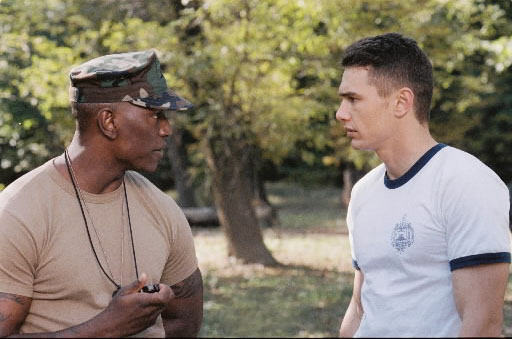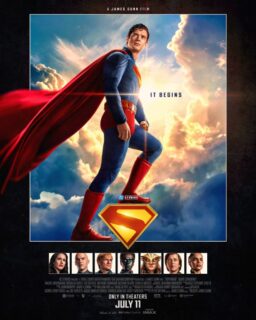Q. I noticed in your review of “Annapolis” some errors and maybe a misperception of what the Naval Academy is about. Tyrese Gibson plays Midshipman Lieutenant Cole; he is not a “drill sergeant” and is not “on loan to the academy.” Prior-enlisted Marines and sailors are a regular occurrence at USNA. I think, however, that your misperception of the Naval Academy illustrates what any other viewer would think and how the filmmakers didn’t care about detail or a well-made story. Why make a movie about a unique institution like the United States Naval Academy if you can’t do it right?
Midshipman (name withheld because of naval regulations)
A. You had other interesting comments, which I am using in the Letters section of rogerebert.com. Regarding the rank of the Tyrese Gibson and Jordana Brewster characters, I did not understand they were both midshipmen, and was not alone in my bewilderment. I find that the New York Times calls Gibson the “company commander” and Jordana Brewster the hero’s “superior officer.” The Toronto Globe and Mail calls her a “babelicious officer.” The Chicago Tribune says Brewster is his “military superior” and Cole is his “company commander.” Salon.com calls Gibson the “company commander.” Variety has it about right, with “…his toughest instructor, Midshipman Lt. Cole” and says Brewster is “another superior among his overseers.”
Q. There was confusion on Oscar nominations day about the producing roles of Don Cheadle (“Crash“) and George Clooney (“Good Night, and Good Luck“), and whether they were eligible to go onstage if their films won. Can you explain?
Susan Lake, Urbana, Ill.
A. I was among the confused. Both men were indeed producers of the films involved. Cheadle will not be going onstage if “Crash” wins because the academy has decided to end the cattle calls of countless producers, and has specified two of the film’s other producers. This is unfortunate because (a) Cheadle was instrumental in assembling the film’s all-star cast at bargain-basement prices, and (b) TV viewers would enjoy seeing an actor more than a Suit.
As for Clooney, many reports said he got four nominations, but he took his producer’s credit off “Good Night …” and so disqualified himself for the fourth. Clooney told Entertainment Weekly: “Did I work as a producer on the film? Sure. But not anywhere near the extent that Grant [Heslov] did. Every day I’d come in and say, ‘OK, here’s our 15 problems with financing and our 10 problems with archival footage,’ and he dealt with them. And he deserves credit for that. Films are generally about people trying to grab credit where they don’t deserve it. We had to [deal with] a lot of executive producers that I hadn’t met before. Anyone who gives us $300,000 gets to put their name on the film.”
Q. Just read your Sundance piece on Kirby Dick‘s documentary about the MPAA ratings system, “This Film Is Not Yet Rated.” I want to note that our film “Gunner Palace” originally was given an “R” for language, which we successfully appealed to a PG-13. It is the most profane PG-13 movie ever — I stopped counting f-bombs after the first reel.
While I talk about our experiences with the MPAA in Kirby’s film, I was unaware until a day ago that he doesn’t point out that we in fact defeated the MPAA on its own terms. While I don’t agree with the current ratings system, I think you are right to point out that Valenti’s system was born out of response to regional ratings, which would be a true mess for indie pics like “Gunner.” When we won our appeal, based on an argument to the appeals board, they did their job that day.
Mike Tucker, director, “Gunner Palace”
A. The appeals board did their job in your case, but the problem, as Kirby Dick argues, is that it is inconsistent, anonymous, unaccountable, and by refusing to reveal its standards, open to the charge that it rates films in an entirely subjective manner. Critics and audiences are entitled to be subjective, but presumably the MPAA should not be rating by the seat of its pants. If one film can get a PG-13 with countless f-words, why should, for example, the recent film “Imagine Me & You” get an R for, reportedly, one or two excess f-words?
Q. You were standing next to me at the premiere of “This Film Is Not Yet Rated” while taking the photo of Kirby Dick. I would like to make a statement. We never stalked any of the raters or anyone else associated with the MPAA as some of the newspapers state. We only went around them long enough to obtain a photo, and we never followed any of the raters to a school. My job is not to hurt anyone, but only to find out the truth. As a licensed private investigator, it is my job to make sure I have all of the information accurate, and to look at both sides, which I believe I did in this case. Unfortunately not all of our work was told in the documentary, so I could see how you would see it as one-sided.
Becky Altringer, Ariel Investigations, La Verne, Calif.
A. You were the private eye hired by Kirby Dick to discover the identities of the MPAA’s movie raters and Appeals Board members. This you did, discovering in the process that many of their children were in their 20s and 30s and that they were not the “ordinary parents” so often described by Jack Valenti. Other writers may have criticized your work on the case, but I did not. I did mention that the doc was one-sided, in part because the MPAA did not cooperate, in part because Dick sidesteps the fact that the Ratings Board does, at least, head off local censorship. On balance, I admire the film, although if someone were following me in a van and studying my license plates through binoculars, I might indeed feel stalked.
Q. As the wife of Salt Lake Tribune critic and Sundance veteran Sean Means, I laughed and cringed at your references to your festival diet. Although we live in Salt Lake, Sean lives in a Park City condo during the festival, and I worry about his health the entire time he’s gone.
Every year I send him up the mountain with as many bananas, granola bars and multi-vitamins as he’s willing to carry, and every year he winds up living off whatever cheese and crackers he can scavenge from hospitality suite tables. As unhealthy as this seems, I wonder sometimes if this fasting perhaps contributes to his appreciation of the festival, making the whole experience a sort of vision quest in the snowy mountains.
Leslie Means, Salt Lake City, Utah
A. There’s a poignancy in the way we movie critics talk at Sundance about the days since our last balanced meal. A restaurant visit costs you one, maybe two movies. The jurors have it hard, too; at the awards, I told actor Terrence Howard he was looking slim, and he said yes, he lost weight for a role, but had packed on five pounds at Sundance. It is a sad sight to see cinephiles in the lobby, munching oatmeal cookies against the clock.












